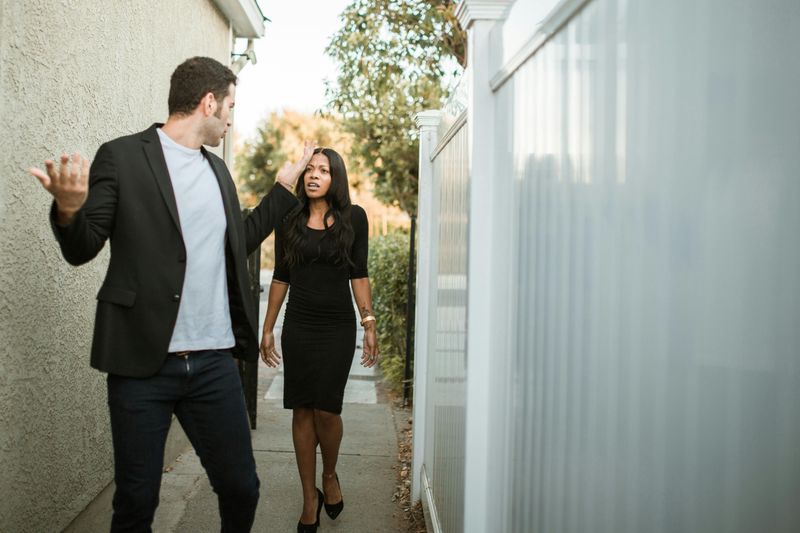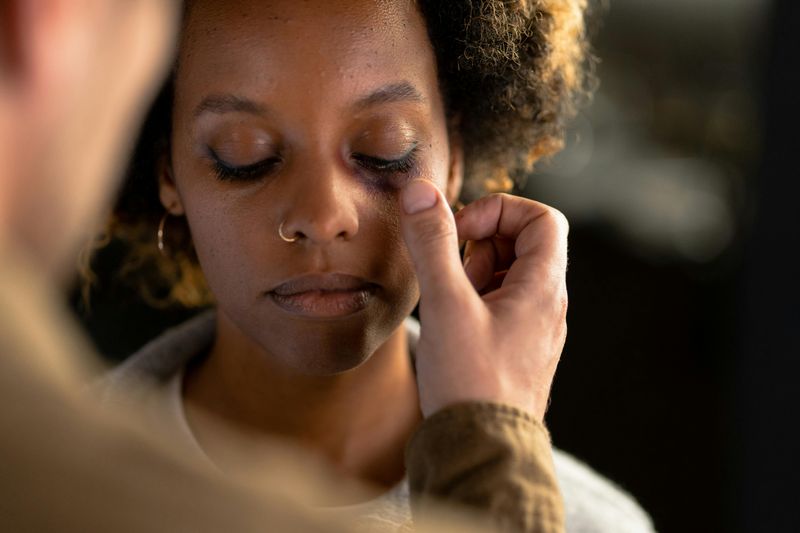Have you ever felt like your current relationship is playing out a script from your past? Many people find themselves stuck in familiar patterns without realizing it. Recognizing these signs can help you break free from unhealthy cycles and build healthier connections.
1. You’re Attracted to the Same Personality Type

Every partner you choose seems to have the same traits as the last one. Maybe they’re all super controlling, or perhaps they avoid serious conversations. Your brain gets comfortable with familiar behaviors, even when they’re not good for you.
This pattern happens because we’re drawn to what feels normal, not necessarily what’s healthy. Breaking this cycle means recognizing what you’re attracted to and asking yourself why. Understanding your preferences helps you make better choices moving forward.
Pay attention to the qualities you keep seeking out in partners and whether they truly serve your happiness.
2. Arguments Feel Strangely Familiar

The fights you’re having now sound exactly like ones from previous relationships. Same topics, same frustrations, different person. This repetition suggests you haven’t addressed the core issues causing these conflicts.
When arguments feel like reruns, it’s your mind’s way of showing unresolved problems. Maybe you struggle with trust, or perhaps communication breaks down in predictable ways. These recurring disputes reveal patterns you need to examine closely.
Take note of what triggers these familiar fights. Identifying the root cause helps you respond differently and create healthier dialogue with your partner instead of repeating old mistakes.
3. Your Emotional Reactions Are Disproportionate

Even tiny issues can provoke huge emotional responses that feel out of proportion. When a partner forgets to text back, it’s easy to spiral into anger or worry. Usually, these reactions are tied to past hurts rather than the present reality.
When old hurts haven’t healed, they color how you interpret current events. Someone’s innocent action becomes loaded with meaning from previous betrayals or disappointments. Your body remembers past pain and reacts as if it’s happening again.
Notice when your feelings seem too big for the moment. This awareness helps you separate past experiences from present reality and respond more appropriately.
4. You’re Waiting for the Other Shoe to Drop

Things are going well, but you can’t relax and enjoy it. You’re constantly bracing for disaster because good times never lasted before. This anxiety prevents you from being present and appreciating positive moments with your partner.
Past relationships taught you that happiness is temporary and pain is inevitable. Your nervous system stays on high alert, scanning for signs of trouble. This hypervigilance creates stress even during peaceful periods.
Learning to trust good moments takes practice and patience. Remind yourself that this relationship isn’t automatically doomed just because others ended badly before now.
5. You’re Ignoring Red Flags You’ve Seen Before

Warning signs appear, but you convince yourself this time will be different. Your partner shows jealousy, dishonesty, or disrespect—behaviors that hurt you before—yet you make excuses. Hope blinds you to patterns you should recognize by now.
We want to believe people will change or that we’re overreacting based on past experiences. This optimism becomes dangerous when it prevents you from protecting yourself. Red flags exist for good reasons and shouldn’t be dismissed.
Trust your instincts when something feels wrong. Past experiences taught you valuable lessons, so honor that wisdom instead of ignoring it for false hope.
6. You’re Playing the Same Role Again

You find yourself being the caretaker, the fixer, or the one always apologizing—just like always. These roles feel comfortable because they’re familiar, but they keep you stuck in unhealthy dynamics. You deserve a partnership where responsibilities are balanced.
Repeating the same role means you haven’t changed the story you’re telling about yourself in relationships. Maybe you learned early that your worth depends on what you do for others. This belief keeps you trapped in one-sided connections.
Challenge yourself to act differently this time. Set boundaries, ask for what you need, and allow your partner to step up.
7. Your Communication Patterns Haven’t Changed

When conflicts come up, you either clam up or blow up—just like you’ve always done. These patterns usually come from how you were raised or past relationships. If you don’t consciously work on them, you’ll keep hurting your connections.
Healthy communication requires learning new skills, not just finding a different partner. If you always avoid difficult conversations or become defensive, those patterns will follow you everywhere. Recognizing your default responses is the first step toward change.
Practice expressing feelings calmly and listening without interrupting. Better communication transforms relationships by creating understanding instead of distance and resentment between partners.

Comments
Loading…